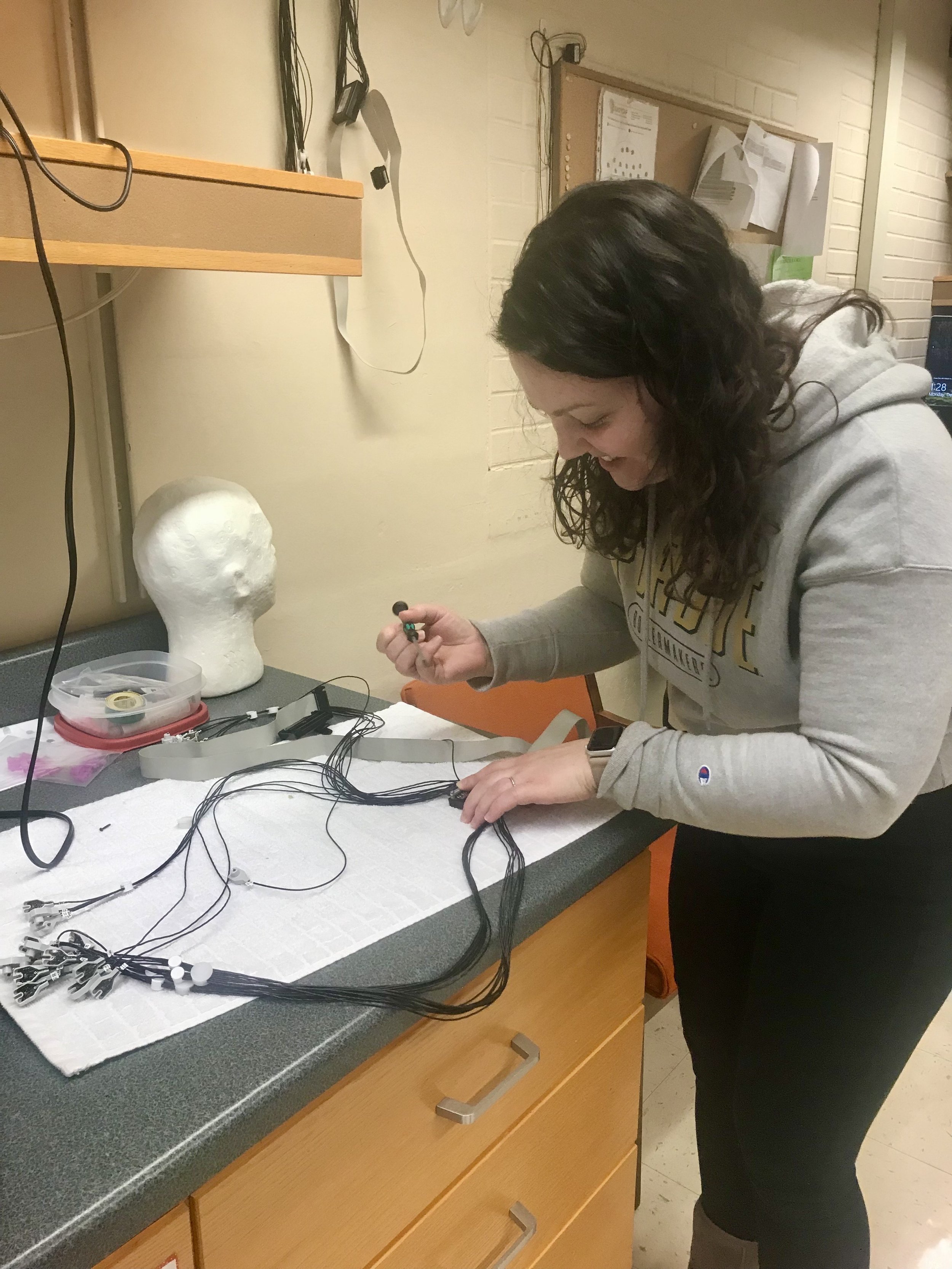
PACER LAB
THE LABORATORY FOR THE PSYCHOPHYSIOLOGICAL ANALYSIS OF COGNITION, EMOTION, AND REWARD
PURDUE UNIVERSITY DEPARTMENT OF PSYCHOLOGICAL SCIENCES
What We Do
The Laboratory for the Psychophysiological Analysis of Cognition, Emotion, and Reward is located within the Department of Psychological Sciences at Purdue University. We study the neurophysiology of psychiatric illnesses.
Our primary research tool is electroencephalography (EEG), which we use as an intermediate phenotype within the broader etiological cascade to map processes of illness onset and progression. The long-term goals of our research are to understand why individuals become ill, when in life they are most at risk, and how to treat those illnesses more effectively. Some of our projects map EEG measures of illness processes onto more distal, upstream risk factors, such as genetic vulnerability and environmental exposures. In other projects, we leverage EEG measures of illnesses processes to prospectively predict downstream emergence of manifest symptoms, diagnoses, and functional impairment.

Our research delves into the intricate patterns of brain activity and their reflection of psychological and behavioral processes. Through neuroimaging techniques in the laboratory, we uncover the complexities of the human mind.
In our clinical research, we then seek to apply these measures of neural activity to better understand psychopathology in the following ways:
— Quantify clinical phenomena in an objective manner by identifying how neural measures may provide clinical information not otherwise attainable through self-report or observation.
— Clarify diagnostic boundaries by mapping dysfunction in well-characterized neural circuitry to illness characteristics across disorders.
— Identify high-risk populations by examining how forms of neural dysfunction may precede overt symptom onset, potentially representing neurobiological mechanisms of risk.
— Predict course of illness by linking patterns of neural dysfunction prospectively to the processes of remission, recovery, and relapse.
Our commitment to understanding the brain through scientific exploration drives our continuous evolution, allowing us to make significant strides in unraveling the mysteries of human cognition.


Interested in researching with us or participating in a study?
We’d love to answer any questions you have.
